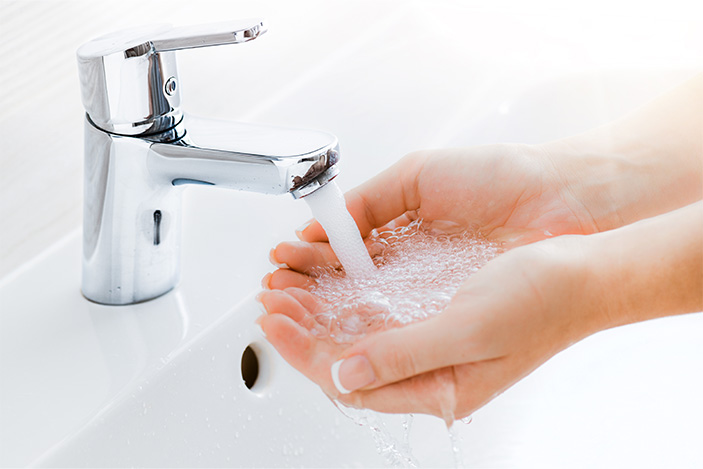Giardiasis is a diarrheal disease that is caused by Giardia duodenalis, a microscopic parasite also known as Giardia. Giardia lives in contaminated water such as lakes, ponds, rivers, wells, cisterns, swimming pools, water parks, and spas. Surface water can even become infected with giardia due to agricultural runoff from infected animals.
Although it is more common in developing countries, giardia can still be found throughout the United States, especially in people who have recently traveled abroad and have prolonged diarrhea symptoms. It is the most common intestinal parasitic disease in the country, affecting more than one million people per year.
How does giardia spread?
The giardia parasite enters the body by eating or drinking anything that has been contaminated with it. Giardia spreads very easily and even getting tiny amounts of it in your mouth can make you feel very sick. Giardia can be contracted by swallowing unsafe food or water, having close contact with some who has it, visiting places with poor sanitation and contaminated surfaces, and having contact with infected animals.
Giardia parasites live in the GI tract of people and animals eventually leaving the body during defecation. At this point, they are encased within hard shells and can survive outside of a host for months. Once they find a new host, the parasites are released into the person’s or animal’s intestines.
People who are most at risk of contracting giardia include people in childcare settings or in close contact with anyone who has the disease, people with weakened immune systems, and anyone who swallows water from springs, lakes, rivers, and swimming pools. Since giardia is much more common in children than it is in adults, parents or caregivers that live or work with children are at a higher risk of developing an infection.
What are the symptoms of giardia?
Some of the most common symptoms of a giardia infection include diarrhea, stomach cramps or pain, upset stomach or nausea, greasy feces that floats, and gas. The symptoms usually appear one to two weeks after becoming infected and can last anywhere from two to six weeks.
How is giardia diagnosed and treated?
Giardia is usually diagnosed through a stool sample. Some doctors may ask for several stool samples over a period of time to ensure that the testing is accurate. Once someone is diagnosed with giardia, they are usually given antibiotics such as metronidazole, tinidazole, and nitazoxanide to treat the infection.
How can you prevent giardia?
One of the easiest ways to prevent giardia is by washing your hands frequently, avoiding drinking untreated water, washing produce thoroughly before eating, using bottled water, and always wearing a condom during anal sex.
Need help?
If you are experiencing symptoms that you feel may be linked to a giardia infection, please don’t hesitate to give us a call. One of our GI specialists will be happy to help you get tested and can create a treatment plan that will help you feel better in no time.

